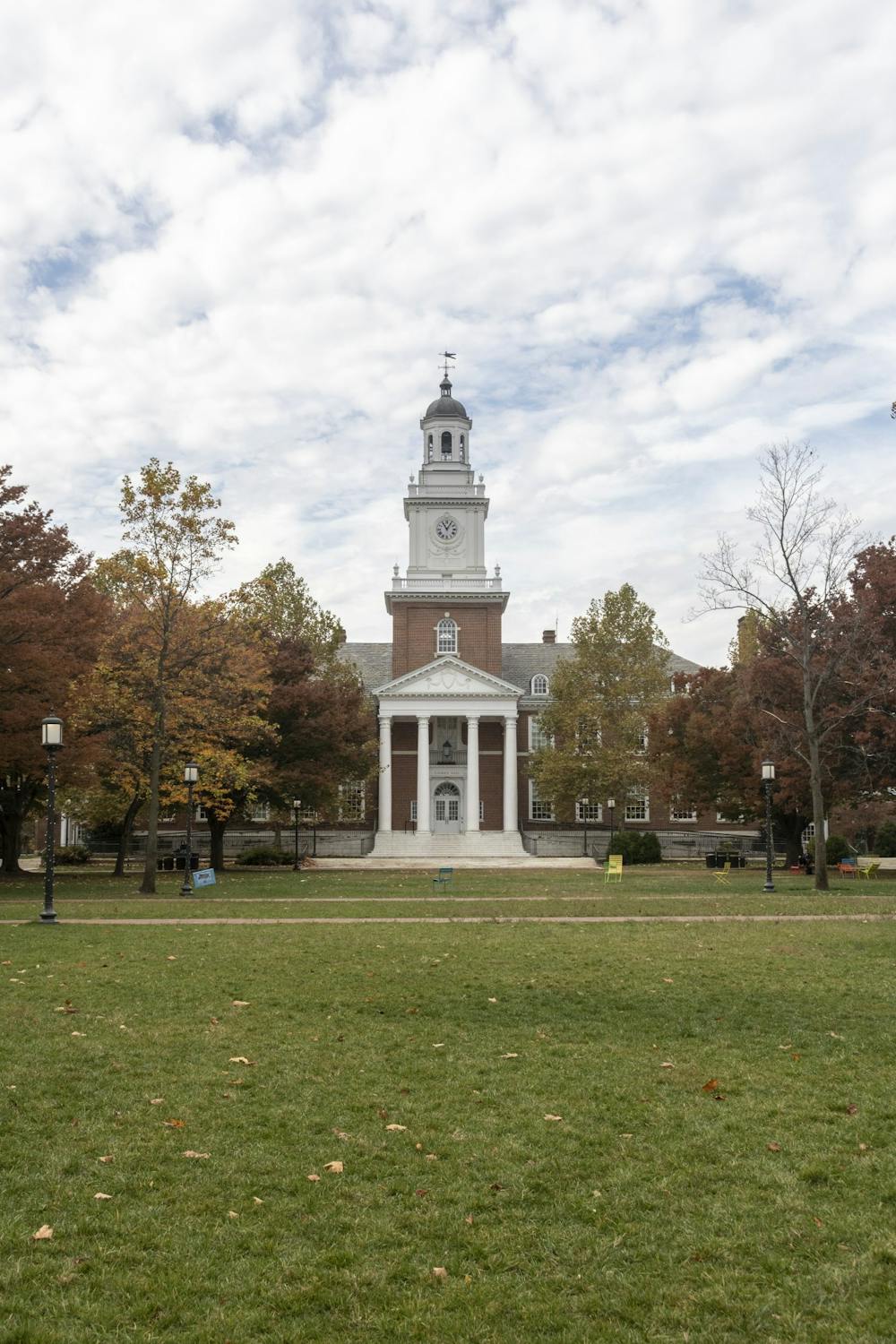The Hopkins Political Science Steering Committee (PSSC) will issue its first call for submissions for its new undergraduate research journal on Friday, Feb. 21.
PSSC Co-Presidents Teresa Ng and Jack White said in an interview with The News-Letter that publishing such a journal has long been a goal of theirs and that they are excited to finally launch the project.
“Up until this year, we were just getting the gears rolling for the steering committee. This is probably the first year that we can say it’s self-fulfilling,” White said. “So we can spend the resources to make a journal, finally.”
In an interview with The News-Letter, PSSC Publications Director Sofia Ruiz explained what kind of submissions they are hoping to receive.
“We’re not expecting original research that’s pulled out of thin air,” she said. “We’re expecting people to submit things that they worked really hard on in class, feel proud of, feel it is a particularly strong piece, and want to submit.”
Ruiz, White and Ng will together serve as the co-editors-in-chief for this current semester. The other members of the PSSC will function as the journal’s associate editors. Ng said that in the future the PSSC may also bring on associate editors who are not PSSC members.
On the basic criteria for submission, Ng explained that she shared Ruiz’s view. This makes the journal more accessible to students, she argued.
“What we’ll be looking for is an interesting or thoughtful comment on the area of politics that people are writing on,” Ng said. “You don’t need to have done a huge research project to do this. You just need to have put in a lot of thought and work on a paper you may have written last semester.”
As to why it was important for the PSSC to undertake this project, White said that the journal would help the PSSC fulfil one of its core functions.
Through the opportunity to publish even just their coursework, he argued, students are drawn deeper into the intellectual life of the Political Science Department.
“The Steering Committee is supposed to be an implement to facilitate undergraduate life as a Political Science major and to offer opportunities that students might not normally get,” White said. “[The journal is] a way to let people display the things they’re proud about writing.”
Ng explained that she and some other members of the PSSC were spurred on in the creation of the journal following a Political Science thesis colloquium with Professor Renée Marlin-Bennett.
According to Ng, Marlin-Bennett described how unfortunate it seemed to her that so few people were able to read the theses produced at the University.
Marlin-Bennet elaborated on this in an interview with The News-Letter.
“It’s unfortunate that people writing theses in Political Science and International Studies essentially write them for their professor,” she said. “The only people who get to read [them] are their professor and maybe their grandmother.”
It is through a wider circulation and a consequently larger readership, she argued, that real contributions to knowledge are made.
Political Science Director of Undergraduate Studies Steven David agreed with Marlin-Bennett in an interview with The News-Letter.
“We want students to think of writing papers as not only something they do for a class,” he said. “To have your fellow students read your stuff, learn from it, criticize it, engage in conversations about it — that’s what a university is about.”
Any Hopkins student may submit to the journal, whatever their declared program of study.
For Ruiz, this decision to open the pages of the journal to all students who are interested in political science is consistent with the PSSC’s mission of stimulating student engagement with political science beyond the classroom setting.
“The criteria that we’re going to be looking for are: Are the facts correct? Is it organized properly? Does it bring something new to the field? Does it add something to the conversation?” Ruiz said. “Really, [the journal is] open to everyone who wants to get feedback on their work, who wants to have the opportunity to get published.”
Junior Dave Taylor said in an interview with The News-Letter that he was glad to see this new initiative from the PSSC, and not just because he himself is a political science student.
“There are so many talented students here, so any opportunity to expand the chances for students to express themselves is a good thing,” Taylor said.
David agreed with Taylor that cultivating student talent is important.
That is why, he argued, the Political Science Department was happy to back the PSSC’s launch of this journal.
“The Department will do what’s necessary and reasonable to make sure this is a success. We’re not talking about huge amounts of money,” David said. “I’m sure that we can find it within our coffers to support this effort.”
Ultimately, however, the success of the journal will come down to the submissions, Ruiz said.
Because they will not be commissioning pieces, the editors are depending on the Hopkins political science community.
“We do want submissions. Even if there are a thousand people that wrote on the same topic as you... if you feel that your piece is unique, if you feel that it contributes something to a conversation, then submit it,” Ruiz said. “If you add to the conversation, that’s what really matters.”





